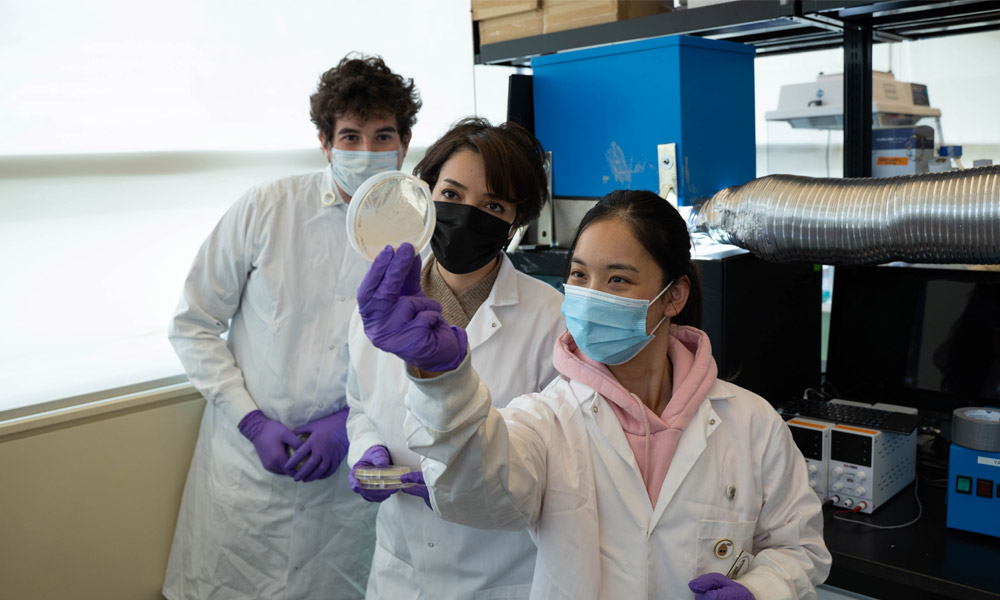
Researchers at the UBC Okanagan have found that smart windows can disinfect surfaces while preventing damaging UV rays from flowing through. Dr. Sepideh Pakpour, Assistant Professor at UBCO School of Engineering, along with student researchers Enrique Calderon and Rita Lam studied four strains of dangerous bacteria: methicillin-resistant Staphylococcus aureus, Klebsiella pneumoniae, E. coli, and Pseudomonas aeruginosa using a mini living-lab set-up. In the lab, smart windows that tint dynamically based on outdoor conditions were shown to drastically reduce bacterial contamination on glass, plastic, and fabric surfaces.
“We know that daylight kills bacteria and fungi. But the question is, are there ways to harness that benefit in buildings, while still protecting us from glare and UV radiation? Our findings demonstrate the benefits of smart windows for disinfection, and have implications for infectious disease transmission in laboratories, health-care facilities, and the buildings in which we live and work,” said Dr. Pakpour.
The research was jointly funded by View Inc., a smart building technologies firm and the Canadian government through MITACS, a not-for-profit organization that supports growth and innovation in Canada by solving business challenges with research solutions from academic institutions.
To read the full story, please visit the UBC Okanagan News website.
Through Strategy 10: Research Culture, UBC is facilitating research and innovation that can generate meaningful impact across communities.